Sunscreen info you need to know!
Most of us enjoy fun in the sun, especially on the lake or beach, but a sunburn is not part of the fun, right? Well let me help you out by avoiding that foolishness all together!
Sun protection is the single most important anti-aging step you can take, keep reading for sunscreen info you need to know, to learn more!
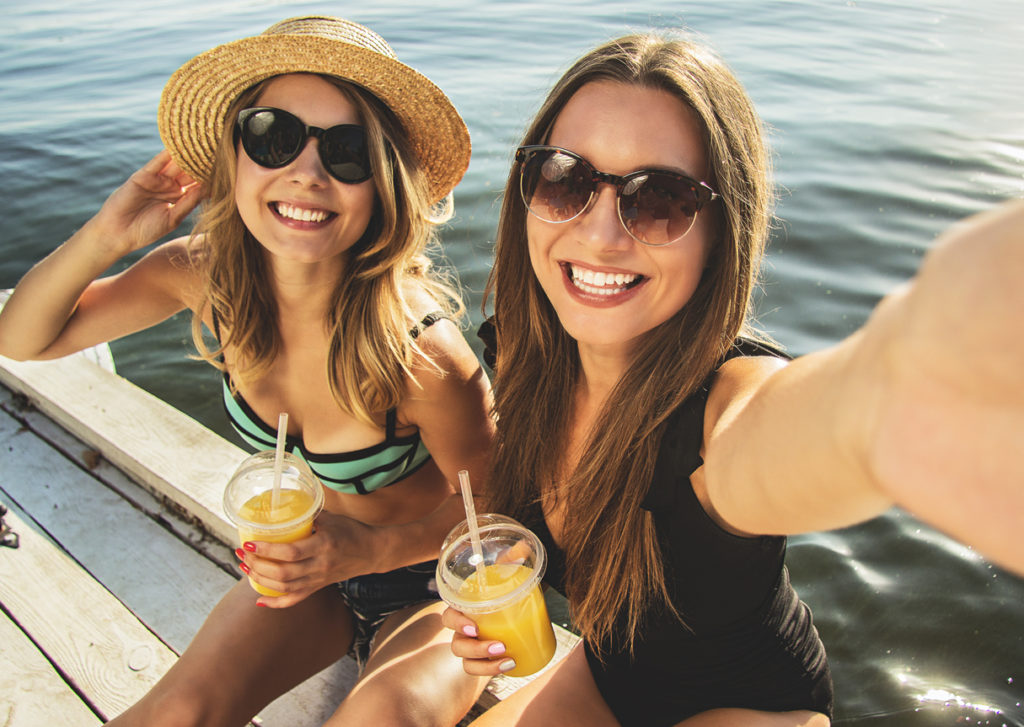
Sunblocks vs. Sunscreens
Sunblocks reflect the sun’s rays from the skin, blocking the rays from penetrating the skin. They use titanium oxide or zinc oxide as the active ingredient. These are called physical sunblocks.
Sunscreens use a variety of cosmetic chemicals that work to absorb harmful UV rays before they penetrate your skin. They filter or screen the sun’s UV rays to keep most rays out, but let some rays in.
Most people use the words interchangeably, but they are two different things.
Suntan lotion is usually less than SPF 15, and would promote sun tanning, not fully protecting your skin.
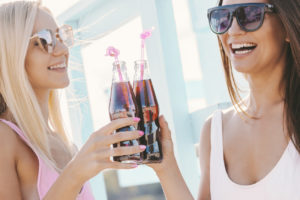
SPF Rating
Sun Protection Factor is a measure of how much solor energy (UV radiation) is required to produce a sunburn on protected skin (for example in the presence of sunscreen) relative to the amount of solar energy required to produce sunburn on unprotected skin. As the SPF value increases, the sunburn protection increases.
The SPF Rating is not = to how long you can stay in the sun. There is a popular misconception that SPF relates to time of solar exposure. Many people believe that if they get a sunburn in one hour, that an SPF 15 would protect them 15 times longer, so 15 hours. But that’s just not the way it works. Sunscreen is only effective for 2 hours at best. Experts say just 40 minutes if you are swimming.
You have to re-apply!
UVA & UVB
UVA means Ultraviolet Aging Rays and UVB means Ultraviolet Burning Rays.
UV radiation: Ultraviolet radiation. Invisible rays that are part of the energy that comes from the sun, can burn the skin, and cause skin cancer. … UVA is weaker than UVB but passes further into the skin than UVB. It is now generally accepted that both UVA and UVB cause skin cancer, including melanoma. (This information is from medicinenet.com)
When a product offers both UVA & UVB protection, then it’s called broad spectrum.
How much does your SPF protect you from burning?
15 blocks about 93% of UVB exposure
30 blocks about 97% of UVB exposure
45+ blocks about 98% of UVB exposure
50 blocks about 99% UVB exposure
Once you get past SPF 30, the amount of protection pretty much levels out. Anything over 50 is just a sales gimmick in my opinion.
UVA rays are the “aging” rays and penetrate deeper, are more damaging rays and are responsible for premature aging, wrinkles and can cause melanoma. They also damage collagen and elastin tissue and are considered the dominant tanning rays. This is why they are used in tanning beds.
So what can you use that will protect your skin from both UVA & UVB rays?
Zinc Oxide provides broad spectrum protection from UVA & UVB and it also is natural. Allergic reactions are almost unheard of with Zinc Oxide.
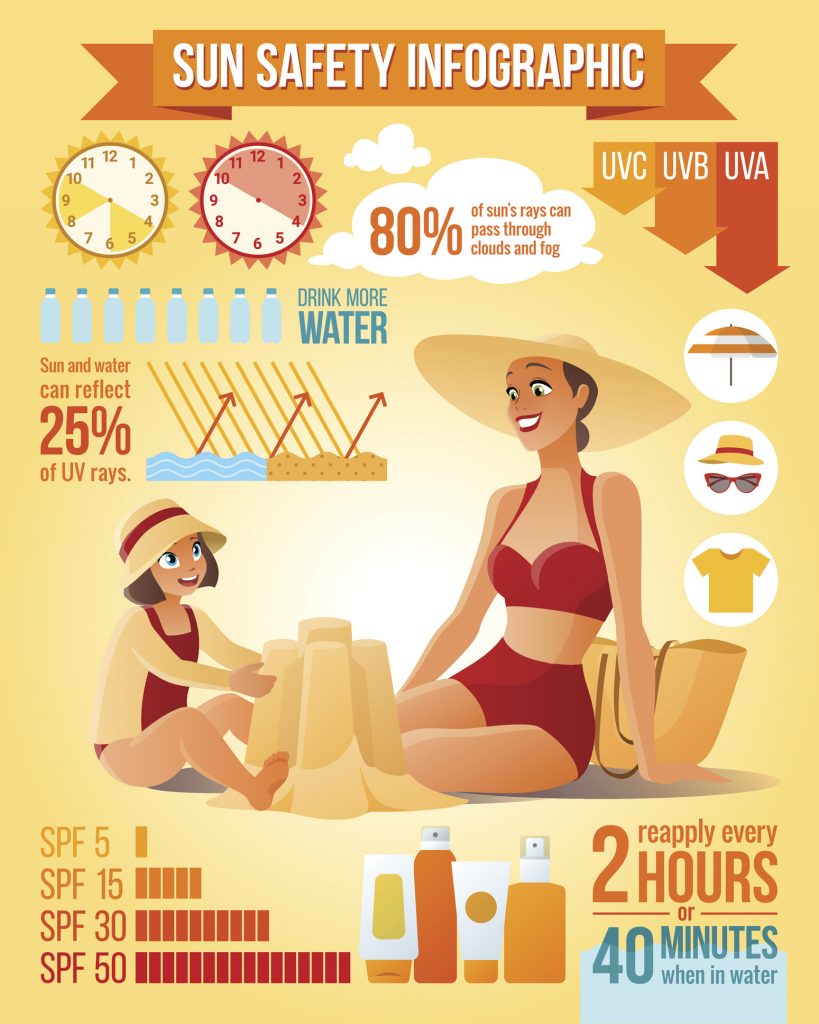
Common Sense Sun Tips – Sunscreen Info You Need To Know!
- Avoid prolonged sun exposure between 10-4.
- No matter the SPF rating, your sunblock should be re-applied every 2 hours or even more often if you’ve been swimming, sweating or towel drying.
- The approximate amount of sunscreen you should apply to the adult body is 1 oz. Yep, that’s a lot. Most people are not applying nearly enough to get the SPF rating on the bottle.
- Sun protection should also be applied 15-20 minutes before exposure. So this means applying before you get to the beach or the pool.
- Skincare companies can no longer claim waterproof. Nothing is truly waterproof, so you will see the term water resistant. YOU HAVE TO RE-APPLY!
More Sunscreen Info You Need To Know.
- Always, always, always seek out shade when possible. An umbrella, covered area, tent, shade tree, or just a wide brim hat can offer lots of relief from the heat and sun rays.
- Apply sunblock then wait 60 seconds before applying cosmetics like foundation, concealer and powders.
- Don’t be fooled by clouds, 80% of sun rays can pass through clouds.
- Don’t forget eye and lip protection. I always wear sunglasses and lip balm with SPF to protect my lips. Even lipstick can help keep lips moisturized and protected while your at the beach or on the lake.
- Protective clothing is a must for long days outdoors. Rash guard shirts for our kids keep the areas that need sunblock to a minimum. They are a must for our kiddos!
Aerosol vs. Liquid SPF
No SPF ingredients should be inhaled. If you must use these aerosol sprays, please please please just make sure you or your babies are not breathing in the mist. Plus this stuff is terrible to wash off. I know from personal experience. I used it years ago and always felt like I was not clean after a shower. It often leaves a tacky film on the body. Just gross.
Aerosol Sunscreen Tip! Use as your re-application SPF. This means use a lotion first, then when you need to re-apply, pat dry, and use the spray. It’s easier to reapply, an easier to wash off in the shower later.
SPF 30 or more should be a part of your daily facial skin care regimen.
If you need help choosing an SPF for your skin type, I’m happy to help. Feel free to follow the link below to set up a Virtual Skin Consultation. Products can be mailed to you if you live out of the Iredell County area of North Carolina.
Click here to book an appointment!
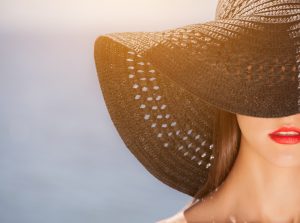
Practice safe sun friends!
But if you get a burn, check out my After Sun Skin Care Tips
What makes me a skin care expert?
12 years as a licensed Skin Therapist (Esthetician) and nearly 20 years in the cosmetic and skin care industry.
Annual continuing education and licensing renewal with my state’s Department of Cosmetic Arts keeps me up to date.
This is a subject I study on a regular basis. All information is a collection of my licensing education, skin journals and articles I have read, as well as continuing education hours. I am passionate about helping people have healthy skin that they are confident in.
I am not a doctor and I do not diagnose or treat illness. This information is not a substitute for medical care or advice.
Monica
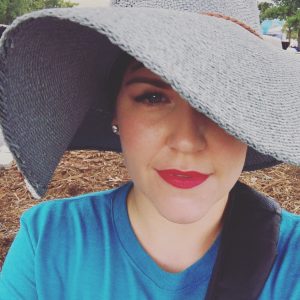
Here are some other blogs you may enjoy!
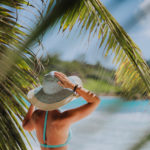
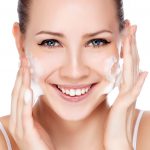
Originally published July 10, 2019
Updated July 3, 2020
Keeping it real, as an Amazon Associate, I earn small commission on products purchased through my links. This is at no additional cost to you. Thanks for using my links!
Check out my new SPA! http://www.HiddenSpaNC.com

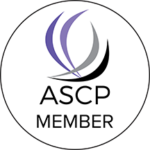
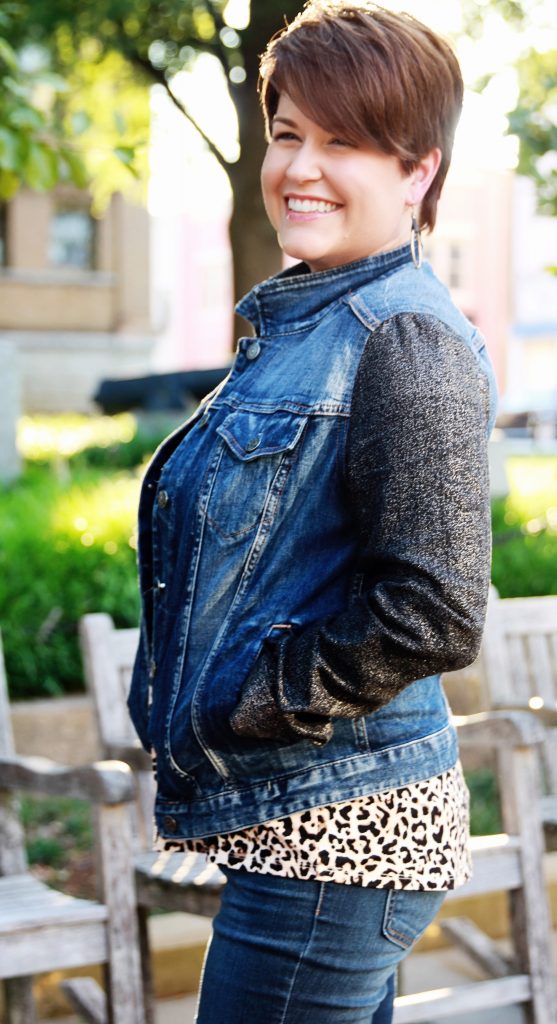
Thank you for sharing .Great stuff . If you want to use my “nose/face” post basil cell surgery as a consequence of not wearing sunscreen protection as child/teen as an example I have a pic for you .
I have had too many clients have skin cancer. They just baked themselves as kids, not knowing any better, then have very invasive surgery to remove the cancerous cells.